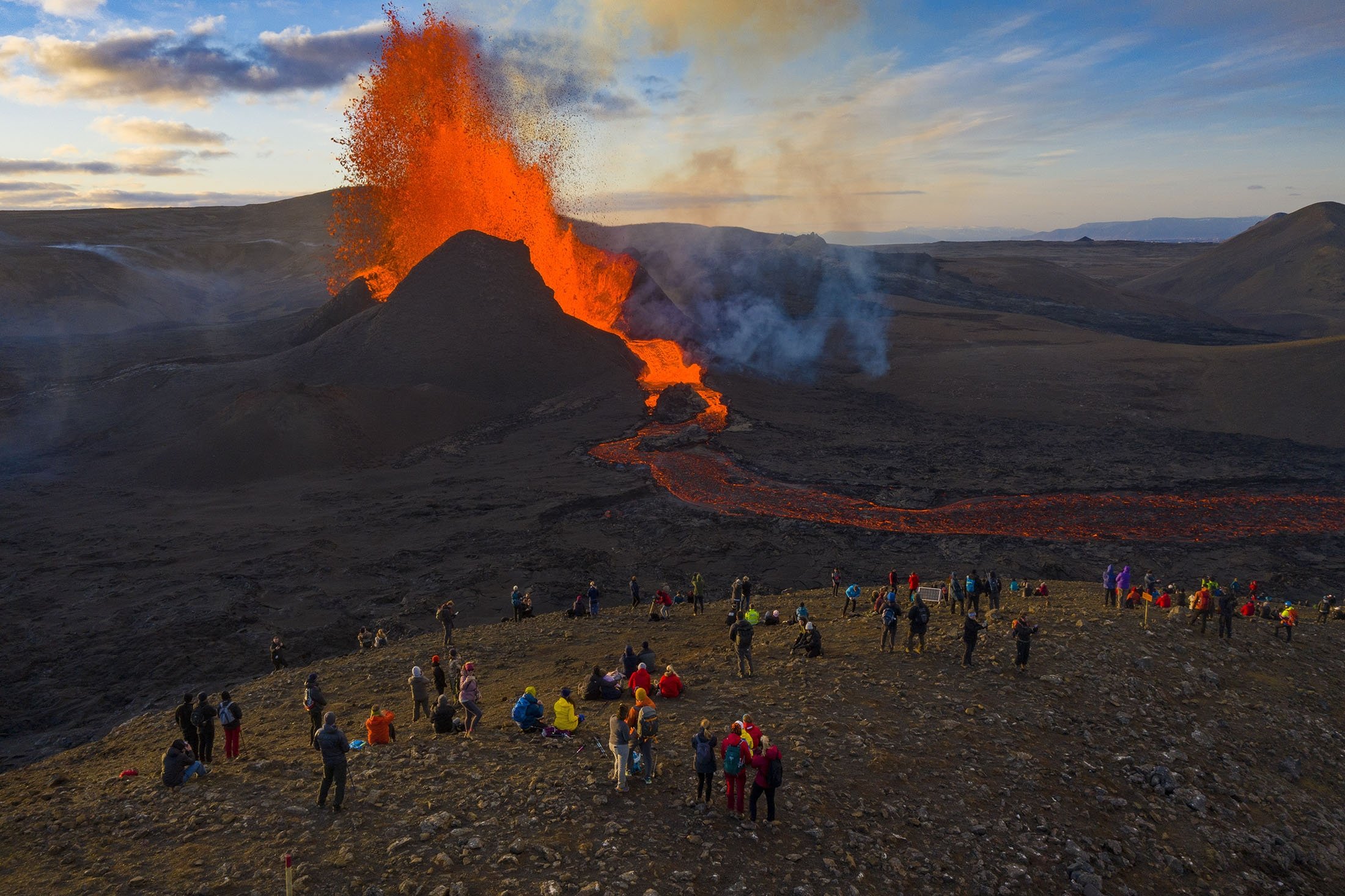A volcano in southwestern Iceland has roared back to life, spewing molten rock and smoke in its fifth eruption since December 2023. The renewed activity poses a fresh threat to the nearby town of Grindavik and forced the evacuation of the popular Blue Lagoon geothermal spa, a major tourist destination.
The eruption began on Wednesday afternoon following a series of earthquakes north of Grindavik. This town of roughly 3, 800 people was largely evacuated in December when the volcano first shook off centuries of dormancy, captivating audiences with a dramatic display of nature's power.
This latest eruption is considered the most intense so far, with lava spewing up to 165 feet into the sky from a fissure stretching over two miles long. Icelandic authorities responded swiftly, evacuating the Blue Lagoon as a precaution and urging residents to stay indoors due to potential ashfall.
The Reykjanes Peninsula, where the volcano is situated, had been dormant for nearly 800 years before springing back to life in March 2021. Since then, there have been a total of eight eruptions, including the current one. Volcanologists believe this heightened activity marks the beginning of a new period of seismic activity in the region.
While the immediate threat appears to be contained, experts warn that eruptions like these can be unpredictable and long-lasting. The ongoing activity has caused some disruption, with a February eruption having engulfed a pipeline and cutting off hot water supplies to thousands.
The Icelandic Meteorological Office is closely monitoring the situation, and geologists are on the ground studying the ongoing volcanic processes. With the volcano showing no signs of settling down anytime soon, Icelandic authorities are prepared for a protracted period of volcanic activity.
The economic impact of these eruptions is also a concern. Grindavik's main industry is fishing, and tourism plays a vital role in the region's economy. The repeated evacuations and disruptions caused by volcanic activity could potentially have a negative impact on both sectors.
Despite the dangers, Iceland's volcanic eruptions also draw in a certain type of tourist. Witnessing a natural phenomenon like this firsthand can be a powerful experience, and some tour operators are already offering safe viewing experiences of the eruption from a distance.
As Iceland grapples with this renewed volcanic activity, scientists will be studying the ongoing eruptions to gain a better understanding of the volcanic processes at play. This knowledge will be crucial not only for future volcanic hazard mitigation in Iceland but also for volcanology as a whole.

